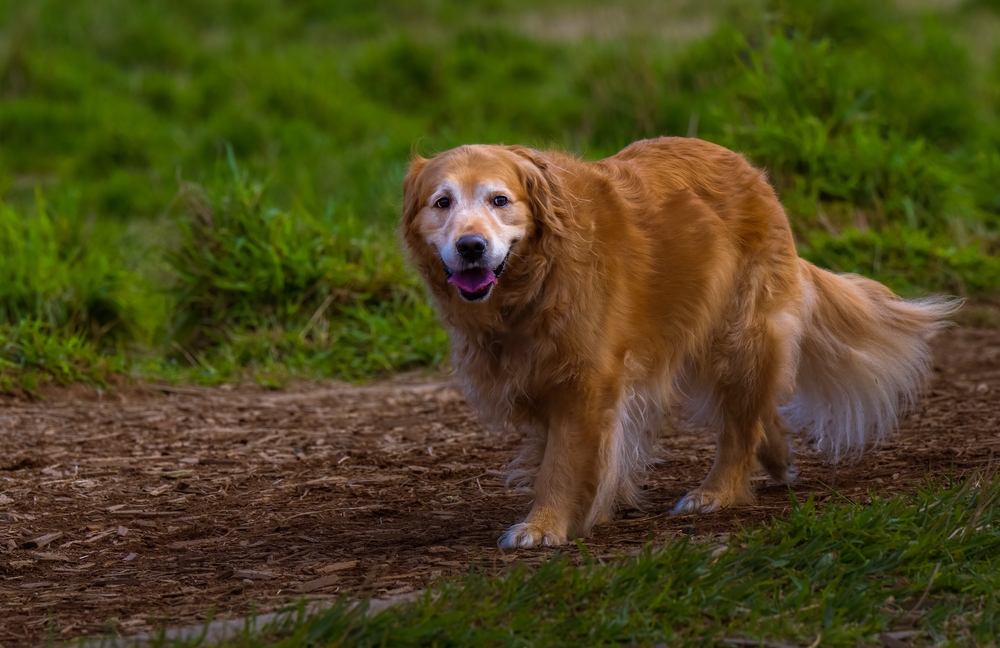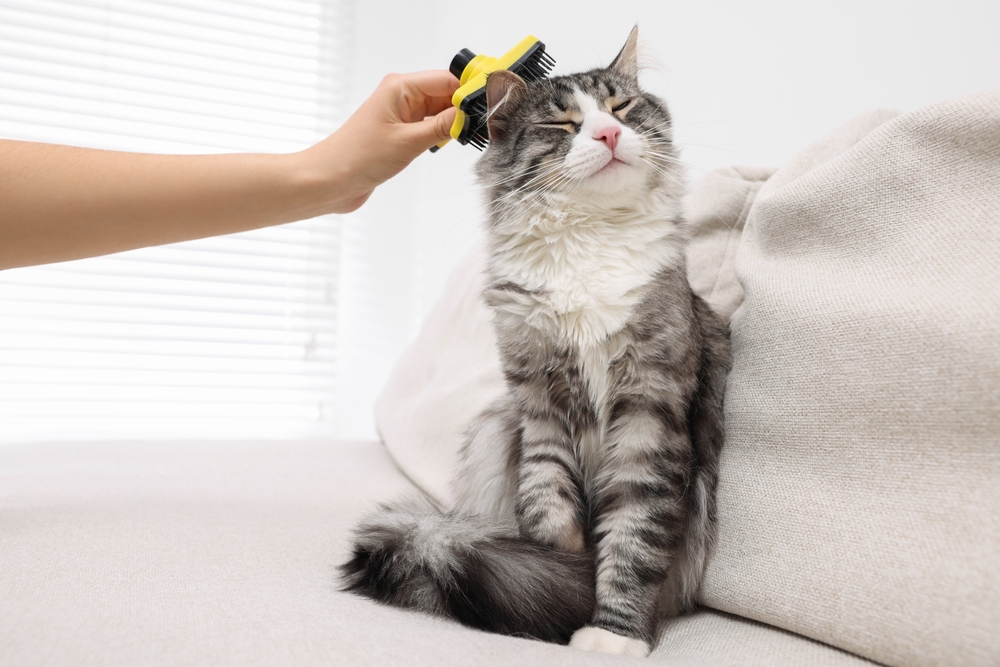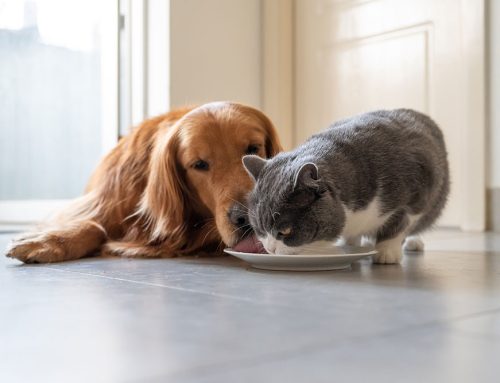Watching your pet’s muzzle turn grey, their eyes become cloudy, and their activity level decrease is a sad part of pet ownership. However, when you brought home your young kitten or puppy, you made a lifelong commitment to their care, and you must provide your aging furry pal with the support they need to maintain their health and happiness. Whether you have a senior cat or dog, read our Family Veterinary Care of Oakdale team’s recommendations to help your four-legged friend age in comfort, health, and happiness.
Growing old is ruff: How to support your senior dog
One of dogs’ most difficult aging challenges is impaired mobility. Arthritis can greatly impact your dog’s quality of life, especially if they are a large or giant breed. Fortunately, you have numerous options to help keep your canine companion comfortable well throughout their golden years. To help ensure your senior dog’s mobility, follow these tips:
- Increase traction to prevent slipping — Slick tile, wood, or laminate flooring pose difficulties to arthritic dogs as they try to find purchase while skating along the floor. To help improve your dog’s traction, place carpet runners or rugs on slick floors, and apply grips to your dog’s toes or adhesive to their paw pads.
- Install pet steps or ramps — If your dog has a long body, as do dachshunds and corgis, you likely already have steps or ramps in place to help them reach comfy spots on sofas and chairs. However, senior dogs of all breeds and sizes appreciate these navigational tools that help them access furniture, the backyard, or their favorite window spot.
- Provide orthopedic bedding — Cushy beds may seem comfortable, but they often flatten to the floor when your dog lays on them. To cushion your dog’s joints properly, provide them with a firm, supportive orthopedic bed.
- Modify exercise — While your intense border collie may not appreciate slowing down, high-impact or prolonged activities should be modified to prevent undue joint and muscle stress. Swap out rough-and-tumble games for gentler activities, and shorten exercise sessions as needed to ensure your dog remains comfortable.
- Use mobility aids — If your dog struggles with getting into a standing position, posturing to urinate or defecate, or needs additional support while walking, use a mobility aid. Harnesses and slings with handles allow you to carry the bulk of your dog’s weight and give them the stability they need to perform daily activities.
- Provide vision aids — Senior dogs often experience decreased vision, whether because of normal aging changes (e.g., lenticular sclerosis) or disease processes (e.g., cataracts, glaucoma), so they need help maneuvering through their environment. To help your vision-impaired senior dog navigate the house, apply scent markers to guide them to their bed, food and water, and outside. In addition, you should brighten up dim hallways and rooms by plugging in nightlights.
Feel-ine old: How to support your senior cat
Cats often seem to age remarkably well until they reach a point at which they can no longer compensate for impaired mobility, daily stresses, cognitive dysfunction, dental disease, or other chronic conditions. Although your cat may begin to feel their age, you have plenty of ways to support them throughout their senior years. To help your cat age with grace, follow these tips:
- Provide low-sided litter boxes — When your senior cat has arthritis in their elbows, knees, and spine, scaling a litter box’s sides can feel similar to climbing Mount Everest. Allow your cat easy litter box access by providing low-sided boxes with no covers.
- Install ramps for reaching elevated areas — Cats have an instinctual need to climb and be up high, but advancing age makes scaling heights challenging. Install ramps or pet steps to help your aging cat reach the top of their lookout tower or favorite spot overlooking the bird feeder outside.
- Encourage water intake — As desert-creature descendants, cats are prone to dehydration, which can have a negative impact on their kidney and urinary health. Encourage your senior cat to stay well-hydrated by providing them with a drinking fountain and refreshing their drinking water daily.
- Help with the grooming routine — Your once-limber cat may no longer be able to groom their hind end as they become older. Give your feline friend a helping hand by brushing them regularly to prevent mats, and spot clean body areas that are soiled.
- Avoid sudden changes — Cats are sensitive to abrupt changes in their environment, schedule, and lifestyle. In response to stressors, they can develop myriad health and behavior issues. Whenever possible, make changes gradually to give your cat time to adapt.
One of the best ways to support your pet as they age is to ensure they receive frequent wellness care. During your senior pet’s wellness appointment, we will conduct screening tests based on their health status and disease risk to detect health problems before they become serious. Schedule your senior pet’s wellness visit with our Family Veterinary Care of Oakdale team.










Leave A Comment